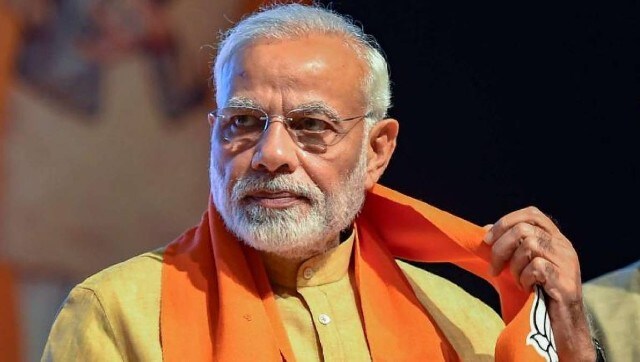
File image of Narendra Modi. PTI
This latest act of unilateralism from the Centre, which doesn’t seem to have been thought through properly, is vindictive and out of court. Pique cannot be a basis for governance

File image of Narendra Modi. PTI
The conflicting orders given to Alapan Bandyopadhyay, chief secretary to the West Bengal government, in the space of four days, raise questions concerning matters fundamental to federalism, which should not be about vendetta or injured pride.
Let us recall the sequence of events. Bandyopadhyay, who was slated to retire on 31 May, was given an extension of service for three months by the Union government on 24 May after the Bengal government made a case for it, to maintain a continuity in the campaign against the pandemic. Detailed consultations were held before the relevant orders were issued.
Late on 28 May, however, the Union government issued a summons asking Bandyopadhyay to report for duty at Delhi, while also writing to the Bengal government to release him forthwith.
Understandably, Chief Minister Mamata Banerjee was both bemused and put out. While she has fulminated against the volte-face in public, she has also written a detailed letter to the Centre dated 31 May asking it to reconsider its position.
The upshot of the matter is that Banerjee has not released Bandyopadhyay and he has reported for work at the Bengal government secretariat on the day he was to have retired. The letter is categorical that Bandyopadhyay will not be released.
As of now, the problem has been resolved by a kind of force majeure. What will follow is not clear on two counts. One, the matter of Bandyopadhyay’s three-month extension remains unresolved and, two, there are questions about what the Centre will do now.
The entire controversy can be seen from two perspectives: the formal and the political. As far as rules go, it is unclear whether the Centre has the power to unilaterally ask an officer to proceed on deputation. There is enough to suggest that it can issue orders, but there is enough, too, to suggest that the state’s acquiescence in the proceedings is a requirement. In any event, the Centre cannot issue edicts without even a hint of consultation.
The question of the extension already granted expressly in Bandyopadhyay’s capacity as chief secretary is also moot. It doesn’t seem to the case that it has been retracted, in which case it stands. It could be argued that the second order supersedes the one granting extension, but that cannot be assumed.
Finally, there is Bandyopadhyay himself to be considered. There is once again some lack of clarity about whether the Union government can order a bureaucrat to go on deputation without the individual having applied for it.
There is little doubt that all these matters will be debated at further length over the next few days. The discussions will not only involve the minutiae of service rules and other laws and regulations, but, one suspects, issues of natural justice as well.
We shall have to wait to see whether Bandyopadhyay’s extension remains valid and whether any proceedings are instituted against him. The latter is extremely unlikely on several grounds: first, he is currently not empanelled for deputation and, as a matter of fact, has never been; and, second, the summons sent to him are so vague that they neither mention whom he is to report to nor in what capacity.
But the real question is political. On 24 May, clearly, the Union government was on the same page as Banerjee and her government on the need to keep the chief secretary at the helm for three further months to ensure that the measures against the spread of could continue unimpaired.
So, what happened between then and 28 May, four working days, to change the Centre’s mind so radically as to ask him to report to Delhi over a weekend? The answer lies obviously in the fact that Banerjee AArrived late for her hastily scheduled meeting with Prime Minister Narendra Modi on that day itself and her departure from it after presenting him with some papers and demands in connection with cyclone relief.
Banerjee has explained her position. She says she was delayed by existing cyclone-related commitments and conflicting flight schedules that left her circling in the air. As for her departure, she has cited the presence at it of the Leader of the Opposition in the West Bengal Legislative Assembly – the Bharatiya Janata Party’s (BJP’s) Suvendu Adhikari.
There is a case to be made that Modi had tried to politicise the meeting in the first place by inviting two Union ministers, the governor and Adhikari, none of whom had anything to do with flood relief and had no reason for being there. Banerjee was well within her rights to leave.
Modi keeps talking about ‘cooperative federalism’, but in his every action tries to undermine the federal structure. This latest act of unilateralism, which doesn’t seem to have been thought through properly, is vindictive and out of court. Pique cannot be a basis for governance.